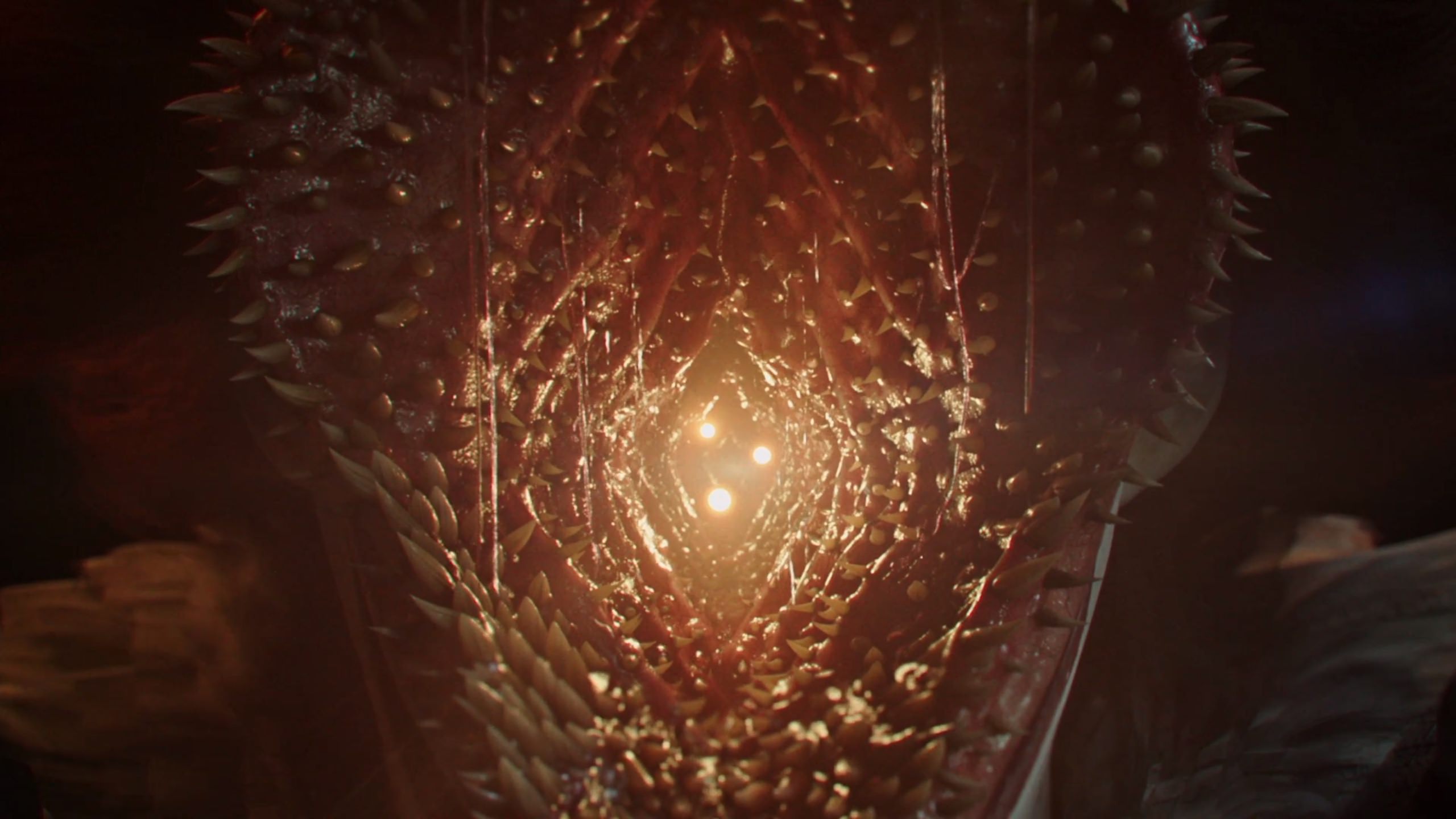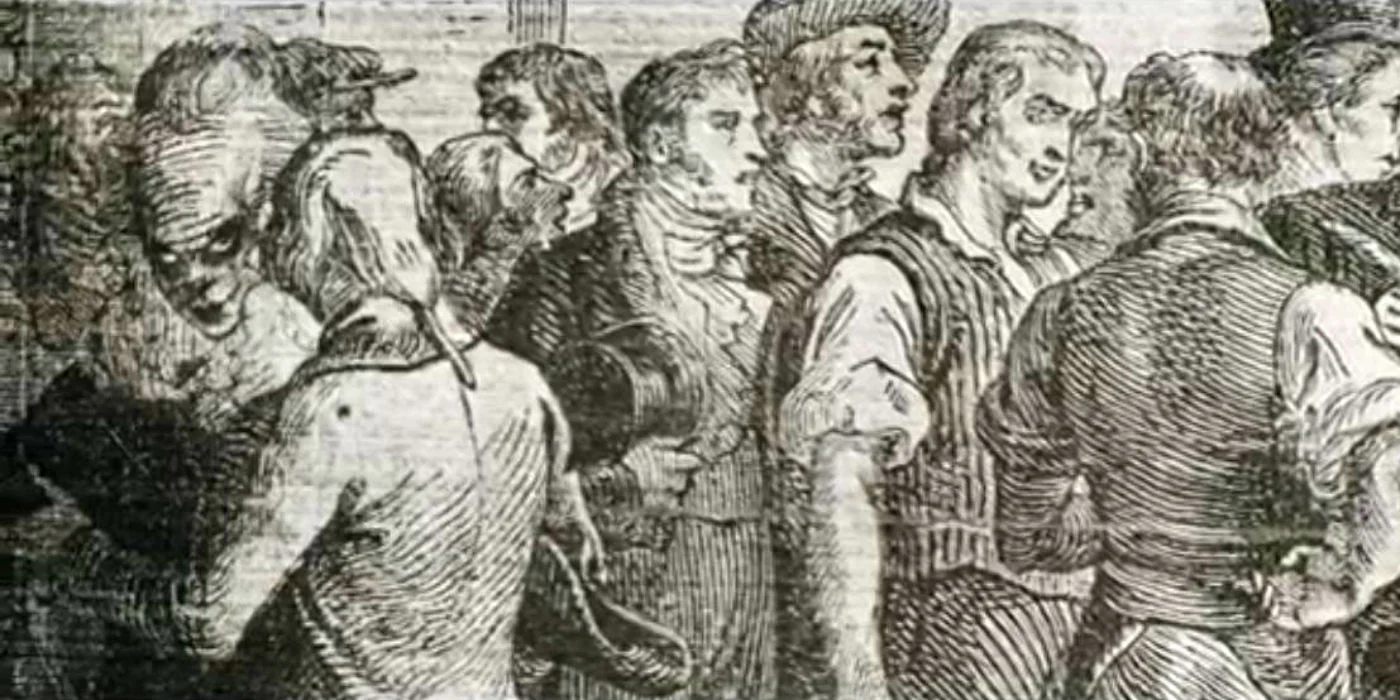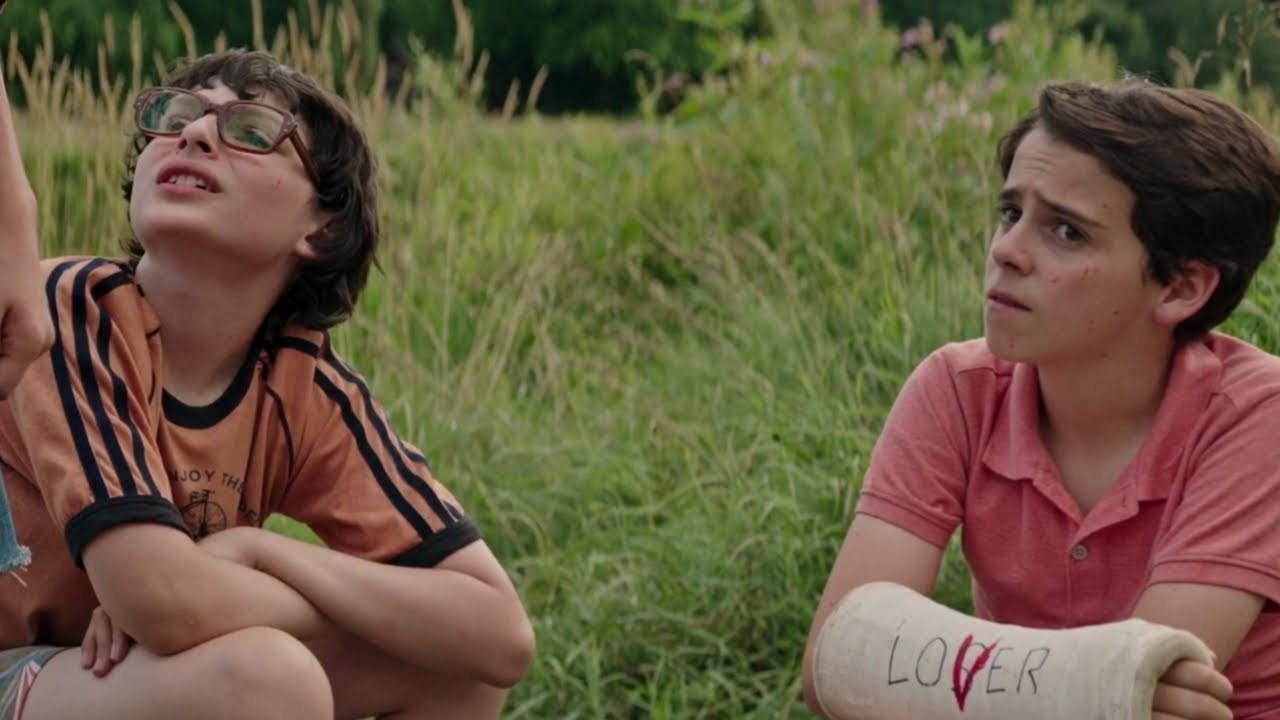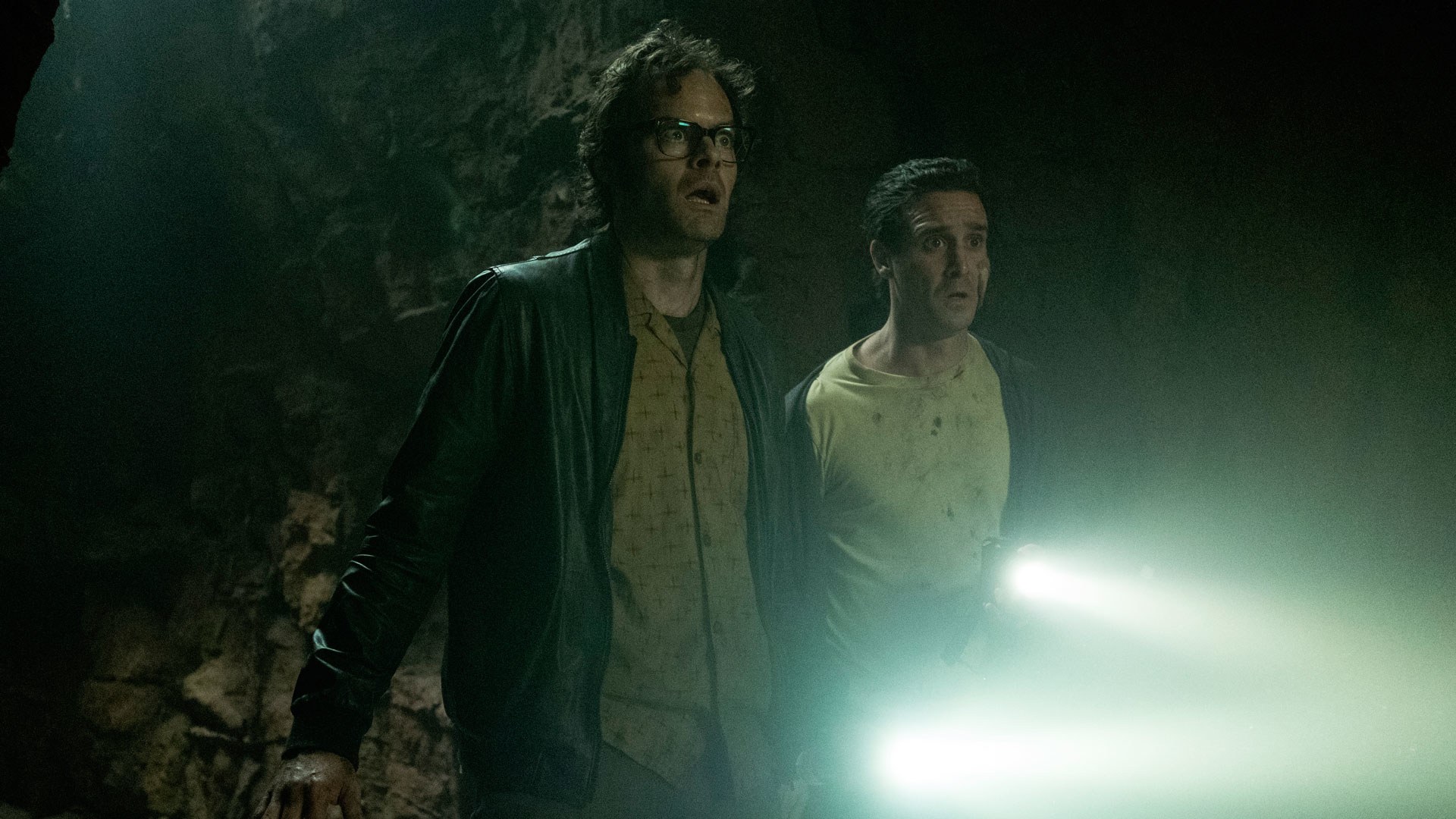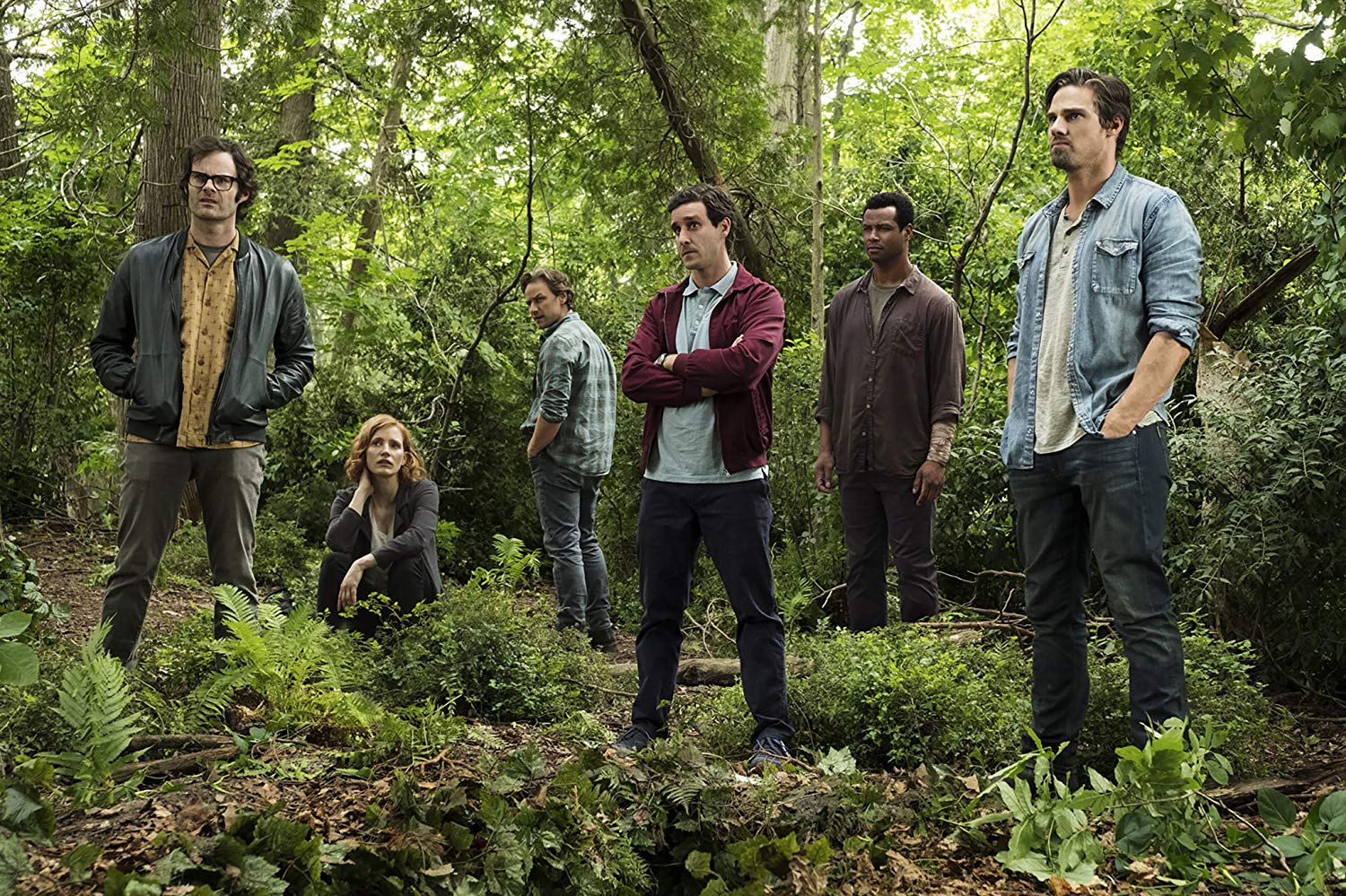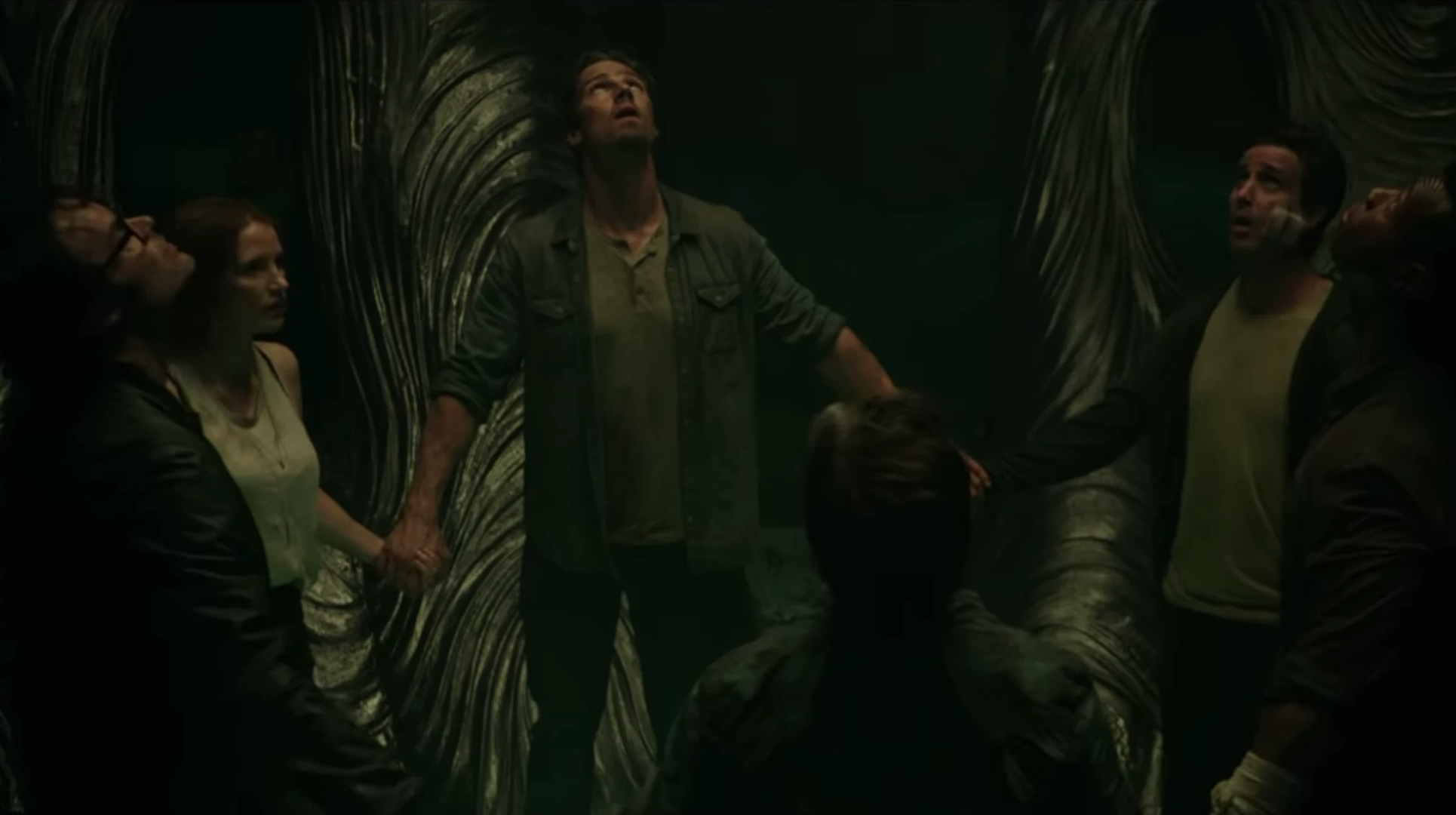It was every bit as scary and insightful as I remembered it was back then in 2017. Keeping that in mind, I went into Chapter 2 cautiously optimistic, doing my very best to be objective about the whole matter. Long story short, I came out of the film and I really, really liked it. Dare I say, just as much as the first instalment of King’s cinematic duology. Don’t get me wrong, the sequel wasn’t an exact carbon copy of the first film. It was different in its own unique and interesting way while at the same time retaining a lot of Chapter 1’s charm. That being said, I can understand why some of my peers may have found this new chapter a little off and I respect their opinion. I would implore them to give the film another look and I’ll tell you exactly why! So put on your “I Love Derry” hat because we’re taking a deep dive into It: Chapter 2.
From Creepy Clowns To Cosmic Horror
Now what made the first film so special was the period and premise in which the story was set in. It: Chapter 1 was a coming-of-age story of kids in the 1980’s learning to navigate through real-life problems like sexual abuse, childhood trauma, bullying and… a strange oedipal complex (looking at you Eddie). The creature of Pennywise merely served to amplify these issues and use it against the children. He is both a psychological and literal demon that the Losers Club must learn to exorcise out of their lives so that they may fully move on.
And while Pennywise is at times directly responsible for the calamities that befall the children, like his murder of Georgie, he uses his cosmic and spiritual power in far more subtle ways. The social neglect, bigotry and evil found in the town of Derry is a veil that Pennywise has cast over the land, like a curse that won’t go away. Therefore, his brand of terror in the first film has more to do with psychological terror and fear-mongering than it does with his actual nature. Though we do see glimpses of his true form when he reveals his “deadlights” to Beverly in the sewers. In It: Chapter 2, we get to discover Pennywise’s true form and origin. He isn’t just some demon-possessed clown. He’s a cosmic evil who landed on earth millions of years ago. In the original novel, he is billions of years old and originated from another dimension known as the Macroverse or Todash Darkness. Which is linked to the other dark universe in which the monsters from The Mist arrive from.
Right so at this point, there’s a rule in horror that the moment you show or tell us too much about the monster, it loses its mystique and fear factor. Here, however, for me at least, the explanations enhance the terror of It. The truth of the matter is that even with all the information given to us by way of a Native American tribe, there’s still an unknowability that surrounds the creature. Mike can do his level best to trace how back Pennywise has been on Earth and he wouldn’t even begin to scratch the surface. There’s this eerie sensation of smallness and insignificance suddenly dawns upon us. Feelings that are often associated with cosmic horror. Cosmic horror is a subgenre coined by writer H.P. Lovecraft that dealt with entities and creatures that were beyond human comprehension or knowledge. If certain subgenres of horror are used to make statements then cosmic horror speaks volumes to with regards to the insignificance and futility of human life. Somewhere out there, there are beings infinitely older and infinitely more powerful than man. So far, cosmic horror has had trouble properly entering into mainstream consciousness seeing that so much of the horror genre deals with either human depravity in the forms of slasher thrillers or psychological horror, or supernatural forces associated with human religions that imbue a level of meaning to life. And while It: Chapter 2 isn’t necessarily a cosmic horror film, it certainly incorporates elements of the subgenre. It may come off as campy or grand to others but as a fan of Lovecraft and King’s work, I thoroughly appreciated the film taking the time to develop Pennywise’s otherworldly origins. Long after the credits rolled, a question lingered on in the back of my mind: What are other horrifying things exists out there in King’s cinematic universe?
Characters Coming Full Circle
Another major complaint I’ve seen circulating around the net is that the flashback sequences do nothing but prolong the film’s time. That it is merely a trip down memory lane for the older members of the Losers Club. I disagree. What defines a good sequel? A good sequel should have the ability to build upon the story of its predecessor, while at the same time honour the spirit of the original. The mark of a great sequel, in fact, is one that adds value to the film that came before it and personally I felt Chapter 2 did exactly that.
None of the flashbacks felt indulgent or out of place, they all feed right back into the central narrative or subplot in one way or another. Let’s use Richie and Eddie for example. We always knew Richie, hilariously played by Stranger Things’ Finn Wolfhard and Barry’s Bill Hader. In the previous film, all we really knew about him was that he’s a loudmouth, vulgar kid that uses humour to deflect his insecurity. We never really knew though beyond the fact he was a nerd, what he was hiding beneath the surface. We do now. In Richie’s flashback and throughout the film, it’s highly implied that Richie is a closeted homosexual and has trouble opening up because he’s been hurt in the past. This adds so much more layers to his back-and-forth relationship with Eddie we see in the previous film! Then there’s Eddie, played by Shazam!’s Jack Dylan Grazer and James Ransone, who in an illusion, had failed to save his mother and has been living in a state of fear his whole life. He struggles with his desire to live boldly and his instilled sense of caution and fear.
His germaphobic paranoia we see in the first film is no longer just a quirk, it’s a reflection of his failure and fear. So to have Eddie save Richie from Pennywise before dying at his hands after Richie affirms his friend’s courage makes his sacrifice all the more emotionally resonant. Richie finally opening himself up to relationships again, Eddie learns how to be brave again and it’s two friends coming to a place of self-actualization both as individuals and as a team. Seriously, I freaking teared up when Bill Hader’s Richie broke down at the quarry with the rest of the surviving Losers’ Club comforting his loss. I could go on all day about how Beverly and Ben’s relationship came full circle with both of them finally breaking through that barrier between them, and Bill learning to forgive himself. Chapter 2 is such a rich tapestry, tracing each of heroes’ journey to closure.
Finality Through Friendship
Another point of contention some folks have raised about Chapter 2 is the film’s surprisingly sentimental moments and comedic sequences. I’ll admit Chapter 2 did pour on the cheese with the way the power of friendship and imagination defeated Pennywise and Chapter 2 had a lot more jokes in comparison to the first film. However, never once did any of these elements feel deliberately disruptive to the flow of the story or needlessly nostalgic. In fact, they added a ton of heart and fun to the whole affair but most importantly it highlighted an excellent truth of life: adults are just bigger children. Sure we have jobs and relationships and obligations but deep down we’re all just kids longing for love and friendship. No matter old or how big you get, there are just some childhood traumas and scars that time can’t heal.
The opening scenes of Chapter 2 does a wonderful job of driving this point home with members of the Losers’ Club struggling to break free from their past. Beverly Marsh ends up marrying a man who is as equally abusive as her father. Bill is a struggling writer (no surprise there) who can’t seem to nail the endings to his stories due to his lack of closure. Mike is still stuck in Derry, obsessing over Pennywise. Ben is a successful architect who still wrestles with feelings of inadequacy due to Bev choosing Bill over him. Richie is a comedian with serious emotional barriers. Richie married a woman who is in many ways like his overbearing mother and lives in constant fear. Though they are technically grown-ups, they have yet to truly overcome their past. If Chapter 1 was mainly about how children defeating their trauma, then Chapter 2 is a story about adults making peace with it. Taking responsibility for their circumstances and choosing to laugh, love and fight for the things that matter to them most, their friends and families. So to see the adult versions of the Losers’ Club regress back to the place of children so that they may progress forward as healthy adults makes perfect thematic sense.
This is why when the Losers make that final leap into the quarry, it felt so right. It was a symbolic gesture of childhood innocence, emotional catharsis and freedom. Their past no longer has a hold on them because they’re not suppressing, and inevitably emulating, it anymore. Together, they’ve killed the physical manifestation of their fears and regrets. They’ve reconciled with their history together and have brought their past forward in light of a new future ahead of them. Right, so if you still disagree with me and you think It: Chapter 2 isn’t exactly a masterpiece, then fine, I totally get it. One thing you cannot say though is that the film has a single disingenuous bone in its entire body. As a horror film, it may not exactly be the “scariest film ever made” but a part of me thinks Chapter 2 isn’t setting out to achieve that title. Much like its predecessor, it sought to say something meaningful about the human condition through the guise of killer clowns, jumpscares and awesome characters. And though the format might be a tad different, the message is still the same.
